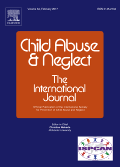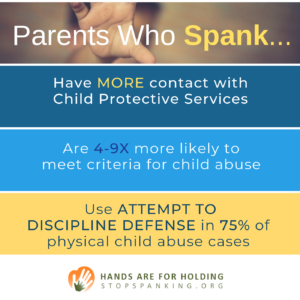The Adverse Childhood Experiences Study
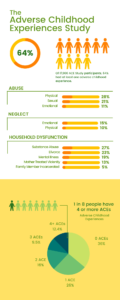
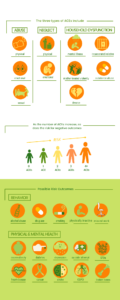
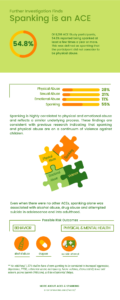
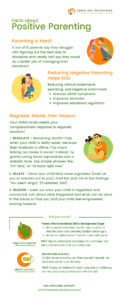
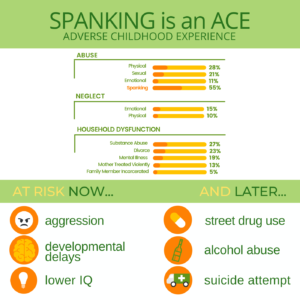
BMC Pediatrics, 2020, Afifi: Findings confirm a two-factor structure (i.e., 1) child maltreatment and peer victimization and 2) household challenges) and indicate that the ACEs list should include original ACEs (i.e., physical abuse, sexual abuse, emotional abuse, emotional neglect, physical neglect, exposure to intimate partner violence (IPV), household substance use, household mental health problems, parental separation or divorce, parental problems with police) and expanded ACEs (i.e., spanking, peer victimization, household gambling problems, foster care placement or child protective organization (CPO) contact, poverty, and neighborhood safety).
2017 Article of the Year in Child Abuse & Neglect The official journal of The International Society of the Prevention of Child Abuse & Neglect (ISPCAN). This paper was chosen as Article of the Year out of the 238 manuscripts published in Child Abuse & Neglect in 2017. The criteria for the award are: a) novel nature of the paper, b) potential to advance the field, and c) high academic quality. Afifi, T.O., Ford, D., Gershoff, E., Merrick, M., Grogan-Kaylor, A., Ports, K.A., MacMillan, H.L., Holden, G.W., Taylor, C.A., Lee, S.J., & Peters Bennett, R. (2017). Spanking and adult mental health impairment: The case for the designation of spanking as an adverse childhood experience, Child Abuse & Neglect, 71, 24-31.
To determine if spanking should be considered an ACE, this study aimed to examine 1): the grouping of spanking with physical and emotional abuse; and 2) if spanking has similar associations with poor adult health problems and accounts for additional model variance. Spanking was associated with increased odds of suicide attempts, moderate to heavy drinking, and the use of street drugs in adulthood over and above experiencing physical and emotional abuse. Spanking is empirically similar to physical and emotional abuse and including spanking with abuse adds to our understanding of these mental health problems. Spanking should also be considered an ACE and addressed in efforts to prevent violence.
Despite numerous studies identifying a broad range of harms associated with the use of spanking and other types of physical punishment, debate continues about its use as a form of discipline. In this commentary, we recommend four strategies to move the field forward and beyond the spanking debate including: 1) use of methodological approaches that allow for stronger causal inference; 2) consideration of human rights issues; 3) a focus on understanding the causes of spanking and reasons for its decline in certain countries; and 4) more emphasis on evidence-based approaches to changing social norms to reject spanking as a form of discipline. Physical punishment needs to be recognized as an important public health problem.
Ending the Spanking Debate
Moving research beyond the spanking debate
September 2017, Harriet L.MacMillan, Christopher R. Miktonb
In “Parenting Attitudes and Infant Spanking: The Influence of Childhood Experiences,” the authors interviewed 1,265 mostly low-income women during their first prenatal care visit and 3 and 11 months after they gave birth. The new mothers provided information about their attitudes toward corporal punishment and about their own childhoods, including any experiences of violence or other adverse childhood experiences. During the third interview, the mothers also provided information about how often they spanked their infants. Researchers found that 14% of mothers in this group spanked their infants, and 19% valued corporal punishment for infants. Mothers who had experienced physical abuse as a child were 1.5 times more likely to spank. More adverse childhood experiences were related to a greater propensity to spank.
The study’s authors discuss the need for early counseling about the potential harmful effects of spanking, especially with at-risk mothers who experienced physical abuse as children, in order to stop the intergenerational transmission of corporal punishment.

